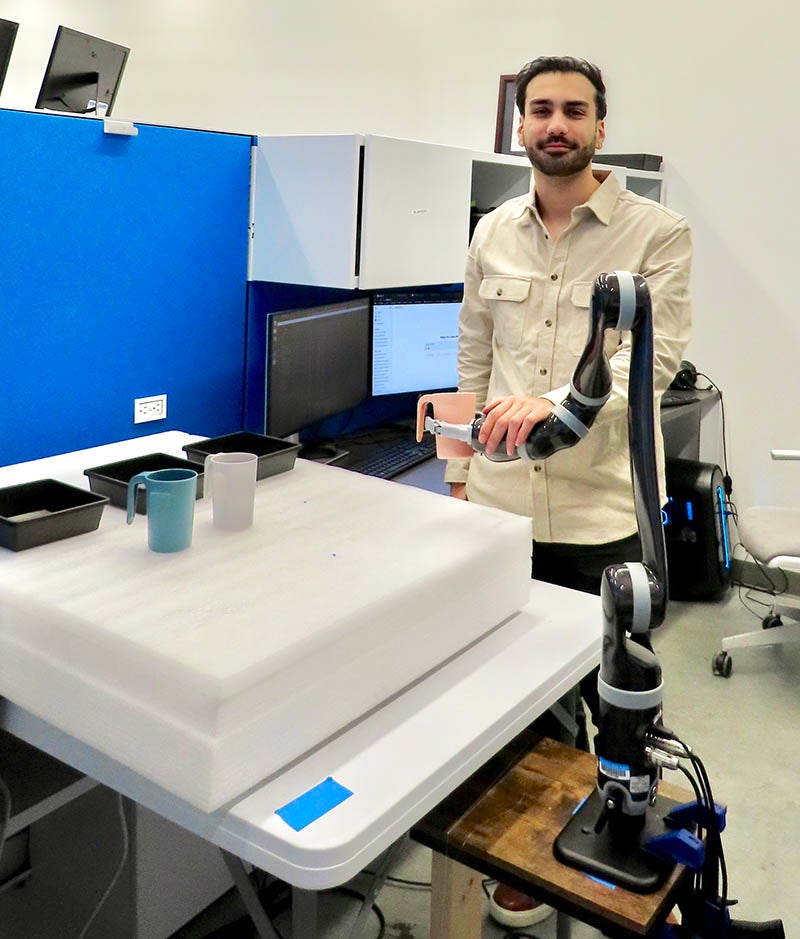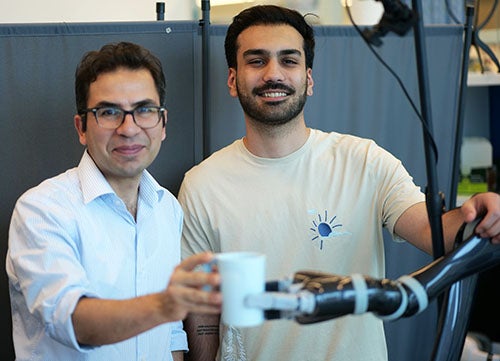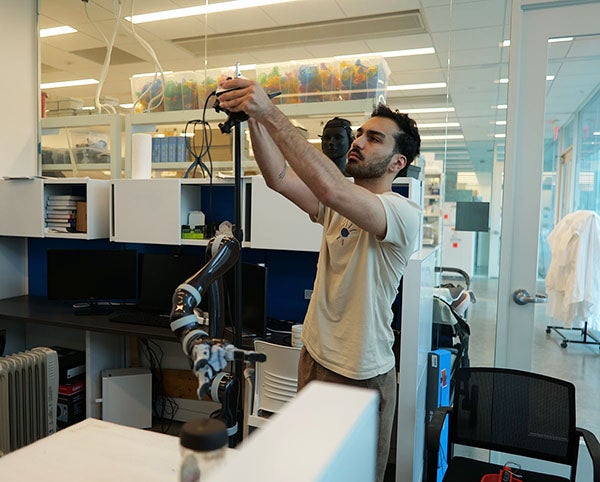In the final semester of his master’s degree program, Ali Rabiee, of Tehran, Iran, was searching for a Ph.D. program in robotics. He found what he was seeking when he came across Reza Abiri’s lab. “I’m passionate about building robots that improve people’s lives,” said Rabiee. “I focus on medical robotics, especially with assistive and rehabilitation applications and develop AI algorithms that help robots collaborate with people in daily activities.”

After an interview, he was encouraged to apply for a First-Year Doctoral Fellowship. “I was honored to receive the First-Year Doctoral Fellowship Award in 2023,” said Rabiee. The fellowship covered tuition and a stipend for the first two years, so he secured a visa and moved to Rhode Island to begin his doctorate.
He joined the Translational Neurorobotics Laboratory in 2023, which focuses on biosignal control systems and medical robots with AI-enabled control strategies. “Our goal is to create intelligent companions for individuals with spinal cord injuries or post-stroke, so the robot can understand their needs and offer help at the right time,” said Rabiee.
“Ali is an independent researcher and a dedicated student,” said Assistant Professor Reza Abiri, director of the TN Lab. “He possesses strong intellectual abilities, a solid work ethic, and innovative ideas that contribute to shaping a clear vision for his research.”

In the last two years, he has served as a research assistant and mentored capstone teams and undergraduate students, supporting projects in robotics, coding, and AI. He also contributed to roughly ten research papers, several of which were published in top-tier journals and conferences, with others currently under review. He was named Outstanding Graduate Student Researcher in the ECBE Department in 2024 and earned the Graduate Research Impact Award from the Graduate Student Association in 2025.

Not only was the lab an ideal match, but he also made sure to enjoy the location. “Rhode Island has felt welcoming from day one,” said Rabiee. “It’s hard to choose just one favorite memory, as I’ve loved exploring the beaches, restaurants, and trails, and meeting friendly people.”
As for what’s next, he is currently an AI intern in the robotics industry. After the internship, he’ll return to URI to continue research and finish his Ph.D. project. “I’m excited to build impactful, real-world applications, grow my industry experience, and ultimately launch my own startup,” said Rabiee. He is expected to graduate with a Ph.D. in electrical engineering in 2027.
A growing prevalence of chronic diseases and aging populations is calling for an increase in precise, minimally invasive surgical interventions, driving a demand for more medical robotics. The global medical robotics market is projected to reach $57 billion by 2032 according to Strategy and Stats Insider.
